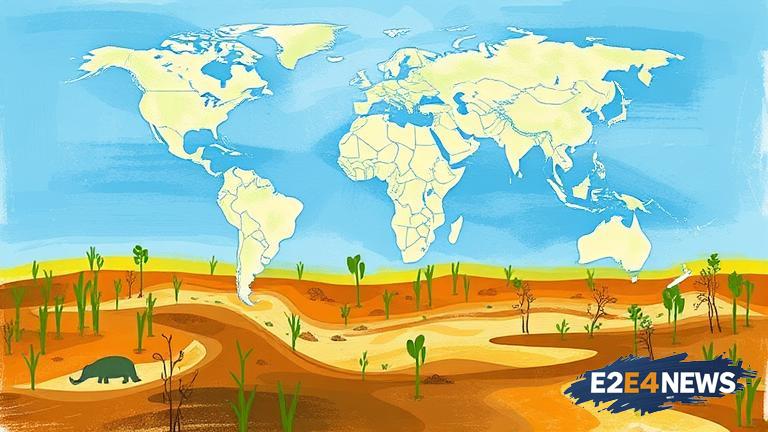A recent report by the BBC highlights the far-reaching consequences of climate change on global food systems. The increasing frequency and severity of heatwaves, droughts, and floods are altering the delicate balance of ecosystems, leading to crop failures, reduced yields, and changed growing seasons. This, in turn, affects the livelihoods of farmers, the availability of nutritious food, and the overall food security of communities. The report cites examples from around the world, including the devastating impact of droughts on wheat crops in Australia, the loss of coffee plantations in Brazil due to rising temperatures, and the struggles of small-scale farmers in Africa to adapt to changing weather patterns. Furthermore, the report notes that climate change is also altering the distribution and prevalence of pests and diseases, which can have significant consequences for food production and human health. The economic implications of these changes are also significant, with estimates suggesting that climate-related shocks to food systems could lead to losses of up to 2% of global GDP by 2050. In addition, the report highlights the disproportionate impact of climate change on vulnerable populations, including the poor, women, and children, who are often the most dependent on agriculture for their livelihoods. To mitigate these effects, experts are calling for urgent action to reduce greenhouse gas emissions, invest in climate-resilient agriculture, and support small-scale farmers in adapting to the changing climate. This includes initiatives such as agroforestry, conservation agriculture, and climate-smart agriculture, which can help to improve soil health, reduce water usage, and promote biodiversity. Moreover, the report emphasizes the need for governments, international organizations, and civil society to work together to address the root causes of climate change and support the development of sustainable food systems. The BBC report also notes that there are many examples of successful climate-resilient agriculture projects around the world, which can serve as models for replication and scaling up. For instance, in Rwanda, a project supported by the International Fund for Agricultural Development (IFAD) has helped small-scale farmers to adopt climate-resilient agricultural practices, resulting in significant increases in crop yields and incomes. Similarly, in India, a program supported by the Indian government has promoted the use of drought-tolerant crop varieties, which has helped to reduce the impact of droughts on farmers. Overall, the report concludes that addressing the impacts of climate change on global food systems requires a concerted effort from all stakeholders, including governments, international organizations, civil society, and the private sector. By working together, it is possible to build more resilient and sustainable food systems that can support the needs of a growing global population while minimizing the risks associated with climate change. The report also highlights the importance of climate change education and awareness-raising, particularly among young people, to promote a culture of sustainability and environmental stewardship. In conclusion, the BBC report provides a comprehensive overview of the complex and far-reaching impacts of climate change on global food systems, and highlights the need for urgent action to address these challenges and promote a more sustainable and food-secure future for all.
